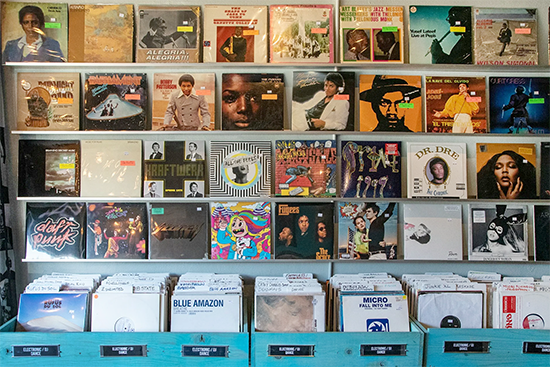Pop & Contemporary Music Criticism Workshop Instructor: Romulo Moraes
Program: Workshop
Credit(s): 1
Date: July 20th, August 3rd, 17th, 31st, September 14th
Time: 14:00-16:30 ET

Program: Workshop
Credit(s): 1
Date: July 20th, August 3rd, 17th, 31st, September 14th
Time: 14:00-16:30 ET
DESCRIPTION: An apocrypha, misattributed at different times to Miles Davis, Frank Zappa, David Byrne, Laurie Anderson, and others, states that “writing about music is like dancing about architecture.” This maxim is a provocation against music critics, who would try to express musical sentiments in language as if they could casually translate them through their words. Although the quote hides a romantic notion of the ineffability of musical aesthetics, it is fair in its contestation of the current paradigm of music writing, which either implies easy transparency in the conversion of sonic impressions or relies on a cold, technical, supposedly rational interpretation of music by way of notational parameters. It also acknowledges the first lesson of art criticism: that writing is a form of literature, an art form like any other, to which the critic needs to submit different artworks. Thus, music criticism would be, first of all, a literary practice. The main fault of the maxim is not that music is easy to translate but instead that the difficulty in translating itself can be potentially productive.
This Workshop will provide practical training on how to write effectively and synthetically about music. In particular, we will address pop music, which lacks a common imaginative vocabulary of abstractions, and we will use forms of communication that are amicable to current-day social media, which, contrary to traditional publishing, are ever relevant. Exercises will include short reviews, one-liners, criticism of criticism, video commentaries, and a longer essay (from the online pitch to the final editing process). The main takeaway from this Workshop should be a deeper engagement with listening and clarification of one’s taste and its translation into text. Why do you like or dislike a song that has been just released? How do you transmit the images and feelings it evokes in you to a wider audience, without alienating either the musically trained or the total dilettante? Lastly, how can music writing allow us to better understand the openings between art forms, between media, and between people?
Session 0 (Open Session): Introduction to Music Writing – We will introduce the bulk of the seminar and its schedule and assignments, and talk about comparative aesthetics and the phenomenology of the musical work, or how to effectively translate between artforms. We will also discuss your favorite pieces of response to music in all media.
Session 1: One-Liners – We will read and edit the outputs to your first assignment (one-liners) and discuss the conditions of critique and judgment for a piece of music, as well as learn to synthesize complex ideas into punchy, forthright, often humorous or dramatic phrases.
Session 2: Short Review – We will read and edit the outputs to your second assignment (blurb or short review) and compare them with examples of great music writers to understand how music reviews are usually structured and how creative writing techniques can play into it.
Session 3: Long Review – We will discuss the output of your second assignment (conceptualization, pitching, and long-form development) and discuss the modulation of music criticism in terms of size, tone, and style. We will also discuss the main gateways for publication and how to become a music writer in a practical sense, attentive to how freelancing markets work.
Session 4: Video Commentary – We will watch and discuss the outputs to your fourth assignment (video commentary) and discuss the role of music criticism in the current landscape of low-attention-span, influencer-dominated social media, or what a music critic even is in a deeper, long durée perspective.”
IMAGE: Mohammad Salemy, Record Store, 2023
To see The New Centre Refund Policy CLICK HERE.
To see The New Centre Refund Policy CLICK HERE.